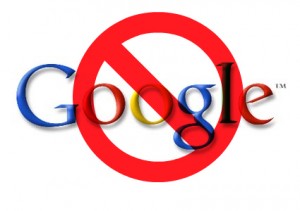The Iranian government appears to have blocked access to Google’s search engine and Gmail webmail service from inside Iran, according to Internet users there.
A security researcher going by the Twitter handle of @0xal reported that access to Gmail and Google had been restricted, and later said that he could only access the services using a VPN or a proxy.
However, he later reported that it is still possible to access Google via some IP addresses rather than a hostname.
“Both Gmail and google.com are blocked since last night, but Gmail is not blocked in some mobile operators,” he said via direct Twitter message.
Regional news site Your Middle East said its Tehran correspondent was no longer able to access the services. The site, and other news agencies, said that the block had been confirmed by Abdolsamad Khoram Abadi, the secretary of an official group responsible for detecting illegal Internet content. The move was made in response to demands from the Iranian people, he told the news outlets.
Another Iranian news outlet, the Young Journalists Club, reported Google’s service in Iran would be blocked due to the availability of a 14-minute film trailer on YouTube that has sparked widespread protest due to its denigrating portrayal of the Prophet Muhammad.
In addition to the video, Iran’s nuclear programme has caused increasing tensions between with the U.S. and other Western countries.
The U.S. and Iran have blamed one another for carrying out covert cyber attacks, a battle that has become increasingly public as computer security experts analyse malicious software such as Stuxnet and Flame. Stuxnet has been linked to attacks on Iran’s uranium refinement capabilities and was designed to disrupt industrial control equipment made by Siemens.
Iran denied on Sunday it was responsible for cyber attacks against the websites of U.S. banks.
The country said it had never launched cyber attacks against U.S. banks, according to the Tehran Times on Sunday, quoting Gholam Reza Jalali, director of Iran’s Passive Defence Organisation. He spoke to the Persian service of the Fars News Agency, according to the paper.
The websites of Bank of America and Chase Bank experienced intermittent outages last week, which have been blamed on denial-of-service attacks originating from Iran, according to reports by NBC News citing unnamed U.S. national security officials.
In May, Iran said it would separate its internal networks from the Internet, a plan intended to insulate the country from cyber attacks, according to a report from the Iranian Students’ News Agency.
The news outlet quoted Iran’s Communications Minister Reza Taghipour as saying the Internet is an “unsafe network,” and that local software would be used to create a national grid. He cautioned, however, that it would not function like the Internet.
In June, Iran said it was developing a strategic cyberplan in order to develop defensive but not offensive capabilities.






